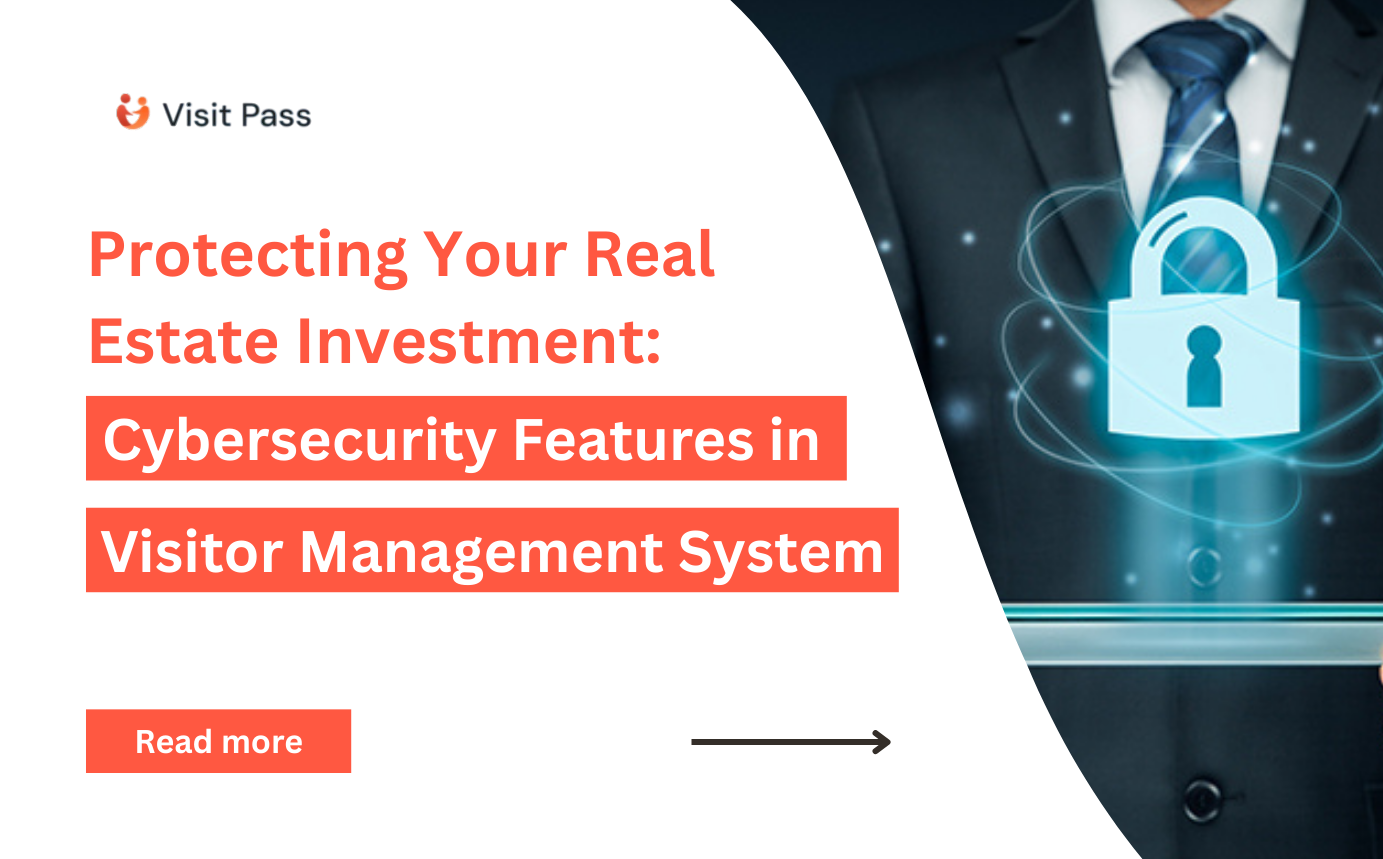Protecting Your Real Estate Investment : Cybersecurity Features in Visitor Management Systems
- 0 Comments
Real estate owners and managers of real estate have twin issues: physical security, but also cyber. In addition to just managing tenants, visitors and contractors, such threats as data breaches or unauthorized access can potentially threaten valuable information and the value of property.
A modern Visitor Management System (VMS) tackles these threats by simplifying check-ins, improving overall visitor experiences and implementing solid cyber protections. In real estate, the front desk is not merely a reception; it’s a first line of defense for security, privacy and tenant satisfaction.
Without a safe, clever VMS, properties will be vulnerable to unauthorized access which can lead to compliance problems and inefficiencies that ultimately impacts both on how an operation runs as well with the trust the tenants have in its management.
In this blog, we explore:
- 1. Who needs to prioritize visitor management in real estate
- 2. Why poor visitor tracking threatens both safety and compliance
- 3. How modern Visitor Management Systems enhance safety, efficiency, and tenant experience
Why Cybersecurity Matters in Real Estate Visitor Management
Traditional visitor logs and pen-and-paper sign-ins offer little protection against fraud or unauthorized access. Worse, they expose sensitive visitor details to anyone who glances at the sheet. In contrast, a digital visitor management system ensures that all information is encrypted, securely stored, and accessible only by authorized personnel.
For real estate investors, this means:
- a) Better compliance with data protection laws like GDPR.
- b) Reduced risk of reputational damage due to data leaks.
c) Higher tenant trust, which directly impacts occupancy and property value.
Cybersecurity Features Built into Modern Visitor Management Systems
1. Data Encryption & Secure Storage
A robust VMS encrypts visitor data at every stage from check-in kiosks to cloud-based servers. This prevents cybercriminals from intercepting sensitive information like names, phone numbers, or ID details.
For properties handling large visitor volumes, encryption ensures compliance while maintaining trust with residents and guests.
2. Role-Based Access Control
Not every staff member should have access to every piece of visitor data. Role-based access control (RBAC) ensures that only authorized personnel such as security staff or property managers can view or manage visitor logs.
In real estate, where third-party vendors and contractors are frequent, RBAC reduces the chance of insider threats and data misuse.
3. Integration with Access Control Systems
Cybersecurity isn’t just about data it’s also about digital access to physical spaces. Many visitor management solutions integrate directly with access control systems, issuing QR codes or temporary digital passes.
This ensures:
- 1. Visitors can only enter authorized areas.
- 2. Every entry and exit is logged digitally.
- 3. Real-time monitoring is possible, reducing the risk of unauthorized access.
4. Automated Watchlist Screening
Properties often need to screen visitors against internal or external watchlists. A VMS with automated watchlist integration flags potential risks instantly, preventing security breaches before they occur.
This proactive measure is especially valuable for residential communities and commercial real estate, where tenant safety is paramount.
5. Data Privacy Compliance
From GDPR to local data protection regulations, compliance is non-negotiable. Visitor management software ensures privacy through:
- ✓ Consent-based check-ins.
- ✓ Scheduled data deletion policies.
- ✓ Secure storage practices.
This not only keeps properties compliant but also shields investors from hefty fines and legal risks.
6. Cybersecurity in Real Estate VMS
Cloud security protocols such as MFA, intrusion detection, and regular updates protect sensitive tenant, visitor, and property data.With scalability, a cloud-based VMS ensures centralized security across multiple sites.
This consistency helps safeguard real estate assets and long-term investments.Explore more about Enhancing Security in Real Estate: The Role of Smart Visitor Management
Cybersecurity Benefits for Real Estate Investors
By adopting a VMS with strong cybersecurity features, real estate stakeholders can:
- ✓ Protect property value by minimizing cyber risks.
- ✓ Build trust with tenants, contractors, and visitors.
- ✓ Reduce operational costs linked to fraud, breaches, and compliance issues.
✓ Ensure seamless yet secure visitor experiences across all sites.
Conclusion
Real estate investments thrive on security, trust, and operational efficiency. A modern visitor management system goes beyond managing check-ins; it acts as a cybersecurity shield for your property. With features like data encryption, access control integration, role-based permissions, and GDPR compliance, property managers can safeguard both their tenants and their long-term investments.
Pixl delivers cutting-edge Visitor Management Systems designed for the real estate industry, ensuring enhanced security, centralized control, and a seamless experience for tenants and visitors.
Ready to transform your real estate security. Contact us now !


